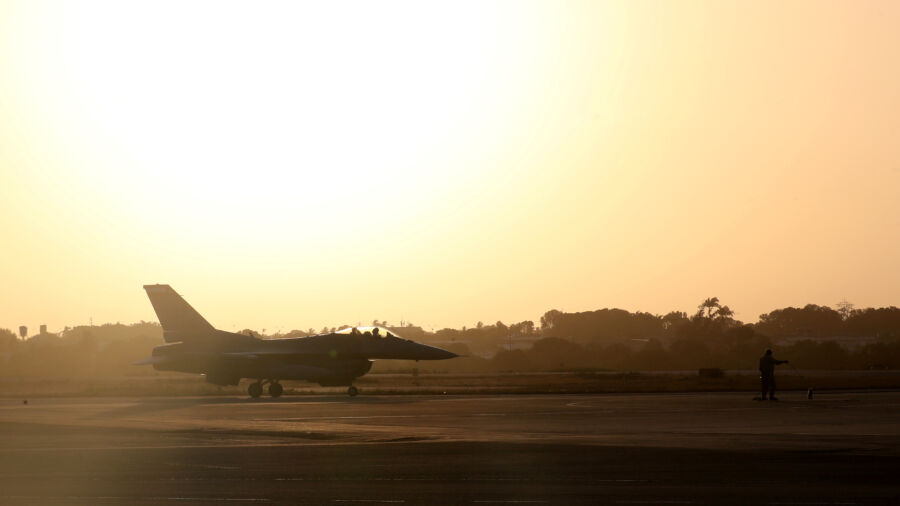The United States has approved a possible $500 million sale of military equipment to Taiwan, which will include infrared search and track (IRST) systems for F-16 fighter jets, the Pentagon announced this week.
In a news release (pdf) on Aug. 23, the U.S. Department of Defense said Taipei requested to purchase IRST systems in addition to integration support, aircraft and munitions support, software delivery and support, spare parts, consumables and accessories, personnel training, training equipment, and other related elements of logistical support.
The agency noted that the potential sale’s value is approximately $500 million. It also indicated that it will not adversely impact U.S. defense readiness.
“This proposed sale serves U.S. national, economic, and security interests by supporting the recipient’s continuing efforts to modernize its armed forces and to maintain a credible defensive capability,” the Defense Department stated, pointing out that the proposed sale would further assist the island nation with “maintaining political stability, military balance, and economic progress.”
“The recipient will have no difficulty absorbing this equipment into its armed forces,” the agency added.
The principal contractor would be Lockheed Martin, a major U.S. defense contractor manufacturing F-16s. The international aerospace company headquartered in Maryland also supplies all five branches of the U.S. military with aircraft equipment.
Although the United States approved the sale, the notification does not indicate that a final deal has been signed or that negotiations have concluded.
However, Taiwan’s Ministry of Defense said it expected the sale to “take effect within a month.”
CCP Threats Against Taiwan
In response to the potential arms sales, Taiwan’s defense ministry said the new equipment would be used for its latest F-16V aircraft, improving the island’s ability to detect and track long-range targets and “greatly improve the effectiveness of air operations.”
Taiwan has been converting 141 F-16A/B jets into the F-16V type and has ordered 66 new F-16Vs, which have advanced avionics, weapons, and radar systems to better face down the Chinese air force, including its J-20 stealth fighters.
Meanwhile, the announcement also comes as the Chinese Communist Party (CCP) repeatedly deployed military aircraft and drones into air space near Taiwan in recent months, representing a serious threat to the island, the ministry noted, thanking the United States for its military aid.
The move is likely to incense the CCP, which rules China as a single-party state and claims that Taiwan is a breakaway province that must be united with the mainland.
Beijing has repeatedly urged Washington—Taiwan’s most important arms supplier—to halt the sale of military equipment to the island nation. As retaliation against Washington’s support of Taipei, the CCP has imposed a series of sanctions on U.S. defense contractors, including Lockheed Martin.
Despite all the threats, the United States maintains legal ties with Taiwan, guaranteeing that it will supply the island nation with the weapons it needs for self-defense.
In late June, the Biden administration approved a Taiwan weapons aid package worth up to $345 million. Just a day after Washington announced its approval of that sale, the Chinese regime dispatched 24 warplanes and five vessels near Taiwan. According to Taiwan’s military, 11 warplanes were spotted crossing the Taiwan Strait median line.
President Joe Biden has indicated several times that the United States is willing to defend Taiwan with force in the event of an attack by the CCP. But the White House has rolled back Mr. Biden’s comments.
The United States has historically maintained a policy of so-called strategic ambiguity on the issue of defending Taiwan. Under the policy, U.S. leadership will typically neither confirm nor deny whether the nation would protect Taiwan militarily.
Andrew Thornebrooke and Reuters contributed to this report.


